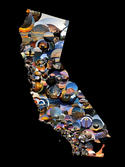Next week Australia's Parliament is set to pass a carbon tax that has proven so divisive it may bring down the Labor-Green government. By setting a low price on carbon, returning the money raised to industry and consumers, and relying so heavily on offsets, the legislation is further proof of the iron law of climate policy. A better way forward would be for Australia to impose a modest fee on coal mining and use the money to support its advanced manufacturing industries and innovation to make clean energy cheap. Below is our take on the legislation in Australia's news magazine, Crikey. read more »
Policy
Australia’s Carbon Tax Battle: Where it Fits into the Global War
Florida Repeals Smart Growth Law
The state of Florida has repealed its 30-year old growth management law (also called "smart growth," "compact development" and "livability"). Under the law, local jurisdictions were required to adopt comprehensive land use plans stipulating where development could and could not occur. These plans were subject to approval by the state Department of Community Affairs, an agency now abolished by the legislation. The state approval process had been similar to that of Oregon. read more »
Are We Headed For China's Fat Years?
Chan Koonchung’s chilling science fiction novel The Fat Years — already an underground sensation in China — will be published in the U.S. January 2012. The book, first published in Hong Kong in 2009, is partly so chilling because it reveals a scenario that is all too plausible. Set in 2013, it takes place after a second financial crisis (euros, anyone?) that all but destroys the Anglo-American economies and ushers in “China’s golden age of ascendancy.”
The nation that leads the world in The Fat Years is less bleakly dystopian than the Stalinist state portrayed in George Orwell’s 1984 or the biologically controlled society of Aldous Huxley’s Brave New World. Yet it is supremely authoritarian — harassing and even executing the rare dissident and putting drugs in the water supply to inflate a sense of well-being among the masses. read more »
Smart Growth (Livability), Air Pollution and Public Health
In response to the outcry by job creators about proposed new Nitrogen Oxides emission regulations, the Obama Administration has suspended a planned expansion of these rules.
The Public Health Risks of Densification read more »
First Step for California: Admit There's a Problem
The October 29, 2009 issue of Time Magazine had an article titled “Why California is America’s Future.” I sure hope not. California is fast becoming a post-industrial hell for almost everyone except the gentry class, their best servants, and the public sector.
We only need a few numbers to demonstrate that California is clearly on the wrong track: read more »
- Login to post comments
The Demise Of The Luxury City
The Republican victory in New York City’s ninth congressional district Sept. 13 — in a special election to replace disgraced Rep. Anthony Weiner — shocked the nation. But more important, it also could have signaled the end of the idea, propagated by Mayor Michael Bloomberg, of New York’s future as a “luxury product.” read more »
Declining Birthrates, Expanded Bureaucracy: Is U.S. Going European?
To President Barack Obama and many other Democrats, Europe continues to exercise something of a fatal attraction. The “European dream” embraced by these politicians — as well as by many pundits, academics and policy analysts — usually consists of an America governed by an expanded bureaucracy, connected by high-speed trains and following a tough green energy policy.
One hopes that the current crisis gripping the E.U. will give even the most devoted Europhiles pause about the wisdom of such mimicry. Yet the deadliest European disease the U.S. must avoid is that of persistent demographic decline. read more »
Obama's Economic Trifecta: How The President Helped Kill Progressivism, Capitalism And Moderation
President Barack Obama‘s “pivot” on jobs this week shows that the president has finally — if belatedly — acknowledged the real misery caused by the Great Recession. However, it does not shed his complicity in the ever deepening employment crisis. Unemployment remains high, exceeding 9% — 16% if you include part-time workers. The percentage of adults in the workforce is bouncing near a 30-year low. read more »
Applying Lessons from the UK Riots to Australia
Many commentators correctly attribute the UK rioting to decades of misgoverning and miseducating youth. Contributing to this has been the breakdown of family discipline, the replacement of working fathers as role models and the creation of a culture of entitlement. Tony Blair has talked about a breakdown in public morality. Less convincingly, many on the left have attributed the cause to the social expenditure cuts of the Cameron Government, cuts that have actually made barely a dent in the proceeding Blair/Brown years of tumescent expenditure growth. read more »
Supply of Tech Workers Greater Than Estimated Demand
CNBC reports the information technology (IT) sector is “where the jobs are.” And the Los Angeles Times writes that tech jobs in San Francisco are a “rare bright spot in the nation’s troubled economy.”
EMSI’s most current data, however, paints a slightly less rosy picture. read more »
- Login to post comments






















